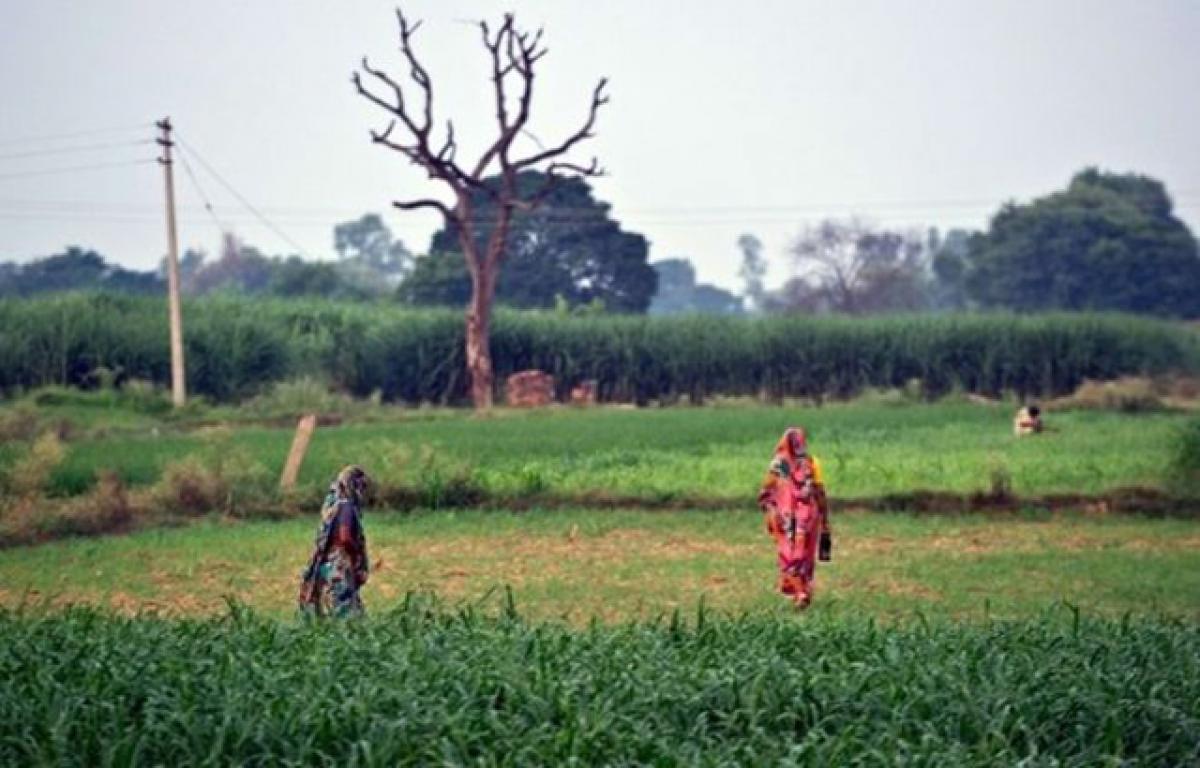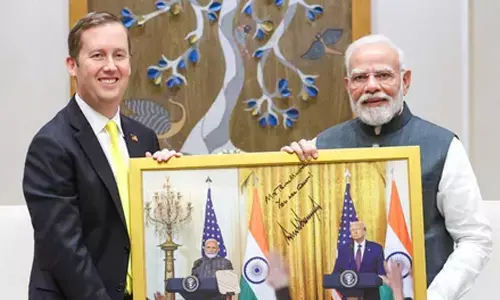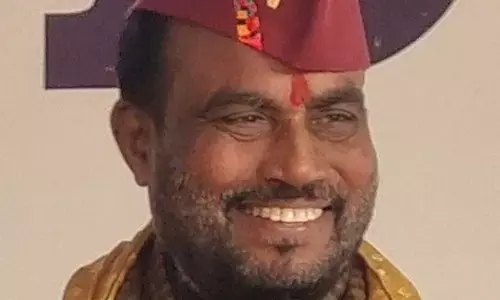India’s national shame persists

India’s national shame persists. According to the World Health Organisation (WHO), the practice has dire consequences for health - especially for the healthy development of children.
India still has an estimated 626 million people who live in homes without toilets, which means that nearly half of India's population practises open defecation
At a time when the government of India talks about Smart Cities, Digital India and #SelfiesWithDaughter, statistics indicate that 60 per cent of all houses without toilets in the world are in India and despite rising incomes and living standards from India's two-decade-old economic boom, India still has an estimated 626 million people who live in homes without toilets, which means that nearly half of India's population practices "open defecation."
.jpg)
According to the World Health Organisation (WHO), the practice has dire consequences for health - especially for the healthy development of children. When people defecate in fields and other open places where poor children also play, the children are inadvertently exposed to parasites and bacteria that lead to physical and cognitive development problems and higher mortality rates.
These in turn jeopardise the country's future economic potential. Globally, water-borne diseases kill more children than AIDS, malaria and measles combined. Waterborne diseases are caused due to lack of safe drinking water and sanitation facilities. It is estimated that annually, waterborne diseases affect about 37.7 million Indians. Out of this, 1.5 million children are estimated to die of diarrhoea alone.
The statistics are more alarming at the school level. In India, only 58.82 per cent schools have separate toilets for girls. Some schools have only one single toilet, which is most often, is unclean. Single toilets increase the risk of not only disease transmission, but also sexual harassment. Many girls opt to drop out of school due to the lack of proper toilet facilities.
It is especially true in the case of adolescent girls who skip school for five to six days every month, during their menstruation. This hampers their education and leads them to drop out of school completely. The school completion rates are a mere 34 per cent for girls, compared to 49 per cent for boys. Proper sanitation facilities in schools are critical for improving the rate of completion of studies at school for the girls.
Since the May 2014 incident, when two girls, aged 14 and 15, were found gang-raped and hanged after they went to relieve themselves in the dark, women in rural India have been gripped by a new fear. There was a brief outcry linking their murders to the lack of toilets. Women have finally started protesting against this lack of dignity and there have been reports that several young women are reluctant to marry into a family, which does not have a proper toilet and bathroom.
That the situation is getting out of hand is amplified by the tragic incident that took place in Dumka, a rural area of Jharkhand, where a teenage girl ended her life by hanging herself because her family refused to build an indoor toilet. The tragic incident is an eye-opener as it happened in the midst of our Swachh Bharat Abbhiyan ("Clean India") campaign was launched in 2014. But it has problems.
Critics suggest that the government installing toilets without consulting their users. That's a recipe for an unused toilet. That's because human software - psychology - is more important than hardware, sometimes, when it comes to persuading people to change a habit. Toilets must be demand-driven, and the demand can come from women . Brides will refuse to marry into families that don't have a toilet.
The issue is so critical that it featured prominently in Prime Minister Narendra Modi's first Independence Day speech, in which the prime minister said, India should ensure toilets for all within four years. "We are in the 21st century and yet there is no dignity for women as they have to go out in the open to defecate and they have to wait for darkness to relieve themselves," Modi said. Yes, sir, development and progress is nothing if it cannot ensure the dignity and respect of the millions of people, especially women, in India.
By Javvadi Lakshmana Rao

















